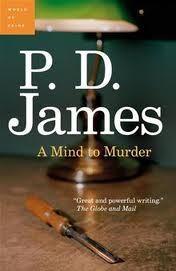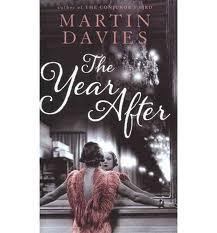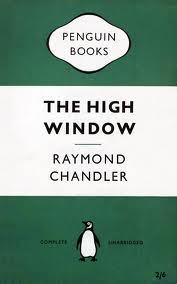I was very unscientific – I wrote all the names on slips of paper and pulled one out of a bag. I’m terribly impressed by the bloggers who know how to do that random number generator thing, but it is quite beyond me. Ruthiella, if you could email me with your address, I’ll pop the book in the post for you.
Well, I struggle along here, still plagued by anxiety but practising, practicing ways to live with it. I am as fastidious as a cat over my emotional life, it seems, and I do not appreciate the current state of messiness. But still, I’ve been reading Harriet Lerner’s excellent book, The Dance of Fear, which I warmly recommend to other anxiety sufferers. She suggests we bring as much patience, curiosity and good humor as possible to bear on the situation, and I liked that list of qualities. I’m also reading Susan Cain’s Quiet: The Power of Introverts in a World That Won’t Stop Talking and finding it almost painful in its accuracy. But I’ll review that properly another day. And finally, I’m listening to The Eustace Diamonds by Anthony Trollope, which after a slow start I’m loving. So much plotting and manipulating, so many schemes and intrigues! I think the literature of the 19th century was designed to be listened to.

I realised there were a few books I’d read in recent weeks that I should review in brief: First off, P. D. James’
A Mind to Murder. Adam Dalgliesh is managing to survive the publication party for his latest book of poems when he’s called away to investigate a murder at the psychiatric clinic over the road. The office manager, an overbearing spinster with a stiffly starched code of morals, has been found stabbed through the heart. This is a very classic crime novel, in which we are introduced to a selection of suspicious folk connected to the clinic as doctors, nurses and administrators, whilst Dalgleish does his thing with the usual elegance and panache (though he makes a fair few mistakes in this one). I find I read P. D. James for the excellent ordinariness of her prose. She is not a lyric writer, nor a quirky one, nor one with an eye for a felicious turn of phrase. But every sentence is neatly turned and well crafted, the events follow one another with satisfying causality, characters are evoked with precision and insight and the whole zips along on its well-oiled rails with pleasing orderliness. I was surprised to note how old this novel is – first published 1963 – as it doesn’t feel it, apart perhaps from a few rather old-fashioned treatments at the clinic. Another advantage of that resolute ordinariness may be this timeless quality.

Martin Davies’
The Year After is a very recent publication, although it harks back in time to the end of WW1. It’s Christmas, 1919 and Tom Allen has just been demobbed. Uncertain what to do with himself in a mournful London, he accepts an invitation to visit Hannesford Court, the home of the Stansbury family with whom he was very friendly before the war broke out. The Stansbury clan were one of those starry families, rich, sociable, blessed. Tom had fancied himself in love with the oldest daughter, Margot, although he had not been in the charmed circle surrounding the eldest son, Harry. He had been a hanger-on, a marginalized member of the happy-go-lucky group, invited for his reliable good manners. Now, Harry is dead, as is his best friend, Julian, who was Margot’s husband. The eldest surviving son, Reggie, a difficult, temperamental young man, is in a convalescent home with horrific injuries. So the Hannesford Court that Tom returns to is, inevitably, not the same as before, even if making valiant attempts to resemble its former glory. This is partly a romance, and partly a mystery story, as Tom tries to find out what happened to a German guest at the Summer Ball before the start of the war. I thought this sounded just the ticket when I picked it up – country house novel, family secrets, hidden crimes – but the elements fail to cohere. It suffers from being not quite enough of anything, and the mystery in particular is a bit limp, given that Tom is returning from the horrors of the First World War against which a small domestic incident pales somewhat. It is quite a nice meditation on the difficulties of picking up life again, after the trauma of the war, and Martin Davies is a very good evocative writer. But it was all a bit meh, alas.

If you want to write a first person narrative, then look no further than Raymond Chandler.
The High Window was the first Philip Marlowe novel I read and Chandler is every bit as brilliant as people say. Marlowe is called to the home of Elizabeth Murdock, a bitter and contemptuous old woman who is still trying to call the shots in her wayward family. It turns out that an heirloom has gone missing, a very valuable coin called the Brasher Dubloon, and Mrs Murdock suspects the nightclub-singer wife of her son, a starlet who rejoices in the name of Linda Conquest. This is a very convenient suspicion, as Linda has recently separated from her husband and disappeared, and it suits Mrs Murdock to throw the blame outside the walls of the family fortress. But of course, as soon as Marlowe goes digging, the bodies pile up and the quarry comes ever closer to home. It’s not just that the prose is fantastic – and it is – it’s what Chandler does with it that’s so clever. Every sentence moves the story along, adds to the characterisation of Marlowe, and says something about the action and the time. I loved the way that this supposedly badass private eye is shown to be so tender in his human sympathies by the way he reacts to the people he comes across. There’s a fine ethical conscience at work, sifting the bad guys from the unlucky ones. Well, they’re called modern classics for a reason, and if there isn’t such a term as Golden Age Noir, there ought to be, and Chandler could wear the crown and the sash.



